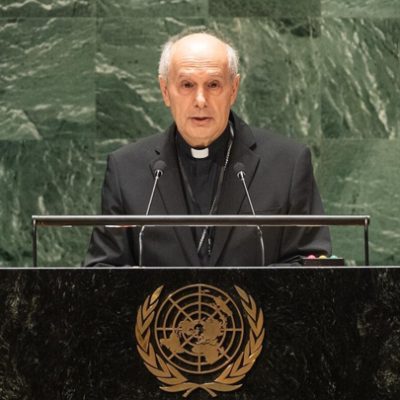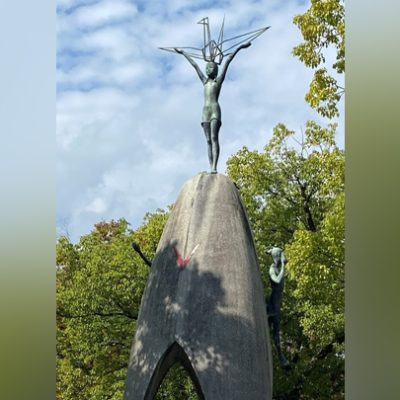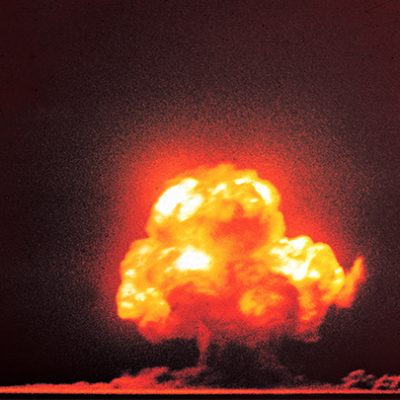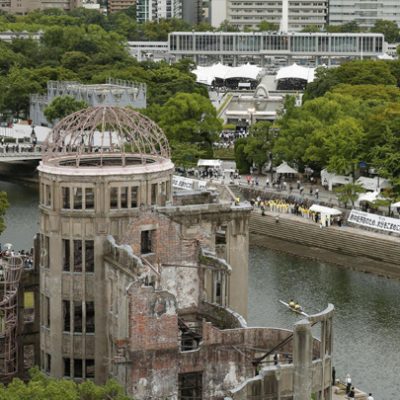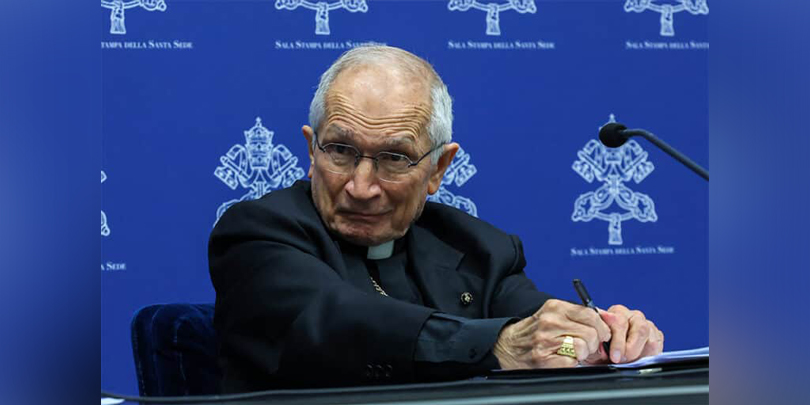
Religious communities can contribute to the “global architecture of disarmament and restraint” by fostering dialogue, prevention and accountability, according to Cardinal Silvano Maria Tomasi. Source: Catholic Review.
The longtime Vatican diplomat and disarmament advocate shared his thoughts as part of the Nobel Laureate Assembly for the Prevention of Nuclear War, held at the University of Chicago on July 14-16.
The three-day gathering saw some 20 Nobel laureates and 60 nuclear experts convene to discuss policy recommendations for mitigating the threat of nuclear war.
The event included the release of a declaration of “pragmatic actions” for steps toward long-term disarmament, including a global recommitment to end explosive nuclear testing. The declaration also called upon Russia, the United States and China to reduce their existing armaments and halt further expansion of their stockpiles.
Cardinal Tomasi said the “religious aspect” of nuclear risk “may offer some ideas of the complexity of the problems and the difficulty in communicating to everybody the disastrous consequences that the eventual use of even one atomic bomb can create.”
In particular, he offered three examples of how religious communities could assist in nuclear deterrence.
“Interfaith verification” programs would “establish a coalition of religious organisations trained to serve as civil society witnesses within arms control verification regimes,” he said.
“While not inspectors in the technical sense, these religious witnesses would accompany United Nations teams, offering moral oversight, promoting transparency and increasing public trust in the disarmament process, especially in difficult regions where states distrust each other but still respect faith leaders in some way,” Cardinal Tomasi said.
Secondly, “faith-based early warning dialogue platforms” would “create regional interreligious confidence building mechanisms where faith leaders regularly meet with policymakers, scientists, and civil society actors to identify early signs of arms racing, destabilising doctrines or doctrinal shifts that can cause negative repercussions,” he said.
And a “global interfaith council,” comprised of “representatives from major world religions, ethicists, scientists and disarmament experts,” could “assess and publish annual reports on the ethical implications of emerging technologies in relation to nuclear stability,” Cardinal Tomasi said.
FULL STORY
Cardinal Tomasi: Religious communities can play key roles in nuclear disarmament (By Gina Christian, Catholic Review)



